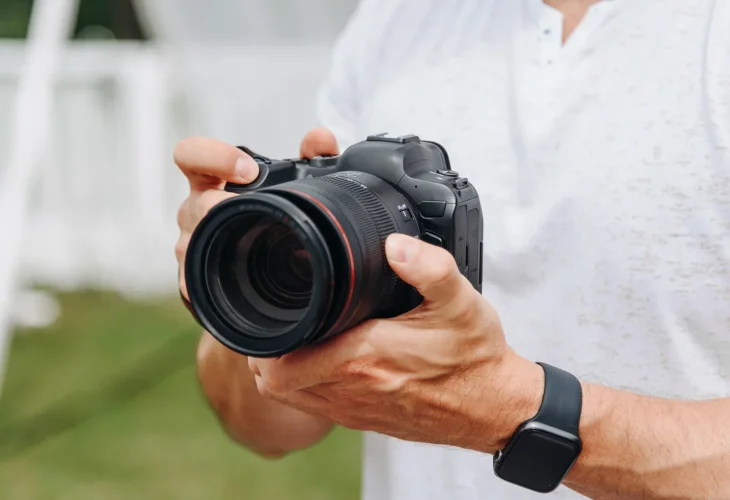The Moment Lost Among Photos: What Happens When We Photograph Instead of Remember?
We live in an age where it's easy to capture moments but hard to truly live them. Our pictures are filled with beautiful moments, but is our heart filled with them as well?
 (Photo: shutterstock)
(Photo: shutterstock)Family trip. A breathtaking sunset. An exciting concert or maybe just a birthday with friends. The mind says "Remember this moment," but the hand already reaches for the phone. One moment later, the instant is captured on the small screen – but did we truly experience it?
In an era where every moment must be documented, where is our memory stored? Is it kept in our hearts or in the device's photo archive?
To Capture or to Experience? The Illusion of the Perfect Moment
The desire to photograph moments arises from a beautiful idea: to immortalize the beauty of that moment so it won't disappear. But in the pursuit of the perfect shot, we miss something else:
The true experience of the moment – which cannot be felt through a screen.
The ability to be genuinely present, without wondering "how does this look from the outside."
For example:
Instead of seeing your child laugh and play, you see them through the camera and wait for the smile to "come out right."
Instead of hearing the music at a concert and experiencing the crowd, you hold a phone up for 5 minutes to record a video you'll never watch again.
What Happens When We Photograph Instead of Remember?
* Memory is Distorted
Our strongest memories come from the senses: what we heard, what we felt, what we saw around us. But when we document, the senses shrink – we are only focused on how it looks in the picture.
The pictures become the artificial memory.
The experience itself remains partial.
The mind replaces "presence" with "documentation"
Paradoxically, the more we photograph, the more the brain is trained to "rely" on the camera to remember for it.
Studies show that people who photographed a particular moment remembered it less well than those who experienced it without documentation.
* The Small Moments Disappear
The most beautiful moments aren't always "photogenic." A hearty laugh in the middle of a meal, a small talk with a friend, a fleeting look of joy.
When we are busy searching for "big moments for pictures," we miss the magic of the small moments.
So Why Do We Keep Taking Pictures?
Fear of Missing Out – We want to prove to ourselves (and the world) that we were there.
Culture of Networks – The moment isn't good enough if it's not shared or hasn't received likes.
Need for Nostalgia – The desire to keep a memory for a time when we want to reminisce.
But it's important to remember: A picture is only a substitute for the real moment, and it can never bring us back to the actual experience.
How to Start Truly Experiencing the Moment Again?
If you also feel that the camera steals your most beautiful moments, here are some ways to ease the documentation and relive the moment:
* Take one picture, then put the phone down.
* It's okay to photograph, but set a boundary. One or two pictures – and then put the device down and focus on the actual experience.
* Ask yourself: Why am I taking this picture? Is it really important to document this moment? Or can I just feel it?
* Dedicate time to "pure presence": When you are in a beautiful place or a special moment, keep the phone in your pocket. Let your eyes, ears, and heart absorb the experience.
* Create memories in your mind, not on a screen: Try to recall the small details: how the sun felt on your face, how the sound was, how the people around you looked.
* Don't photograph just for others: Release the pressure to share every moment. The most beautiful memories are those that remain yours.
Important moments in life don't always fit into a beautiful picture. Sometimes they are right there the moment we put the phone aside and just let ourselves be – to see, to feel, and to remember life through our own eyes, not through a screen.
Because in the end, the best memory is the one you genuinely experienced – not the one you managed to photograph.
Why don't we remember every little detail we see or hear? Rabbi Eliyahu Amr with a great tip for improving memory. Watch

